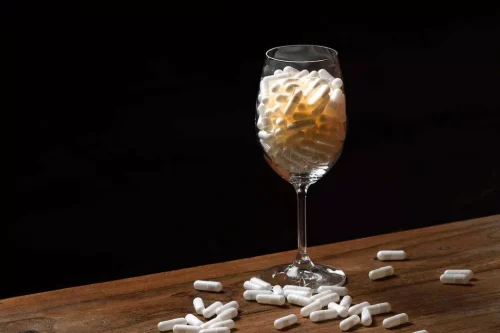Sober living
Opposing effects of alcohol on the immune system

After eliminating pathogens by phagocytosis, the monocytes exhibit pathogen-derived proteins and other molecules (i.e., antigens) on their surfaces. Finally, monocytes and macrophages also produce certain cytokines that help regulate immune system activity. Not only does the immune system mediate alcohol-related injury and illness, but a growing body of literature also indicates that immune signaling in the brain may contribute to alcohol use disorder.
Glucocorticoids and the innate immune system: crosstalk with the toll-like receptor signaling network
Alcohol is a powerful chemical that can have a wide range of adverse effects on almost every part of your body, including your brain, bones and heart. Meanwhile, a study published last month showed that deaths related to excessive drinking are rising in the United States, especially among women. The occasional quarantine cocktail isn’t going to inhibit the immune system or set you on a path to alcohol misuse. But if you find yourself leaning on the bottle to get you through the day, it could be worth it to head outside for a jog — exercise is a tested method of supporting the immune system — or video chat a friend instead. George Koob, a behavioral psychologist and the director of the National Institute on Alcohol Abuse and Alcoholism, agrees.

How much alcohol you have to drink before it weakens your immune system
Still, some experts argue the immune risks don’t mean you have to quit lockdown happy hour completely. If you want to play Ina Garten and have a Cosmo, or Stanley Tucci and have a Negroni, that’s fine. Some research even suggests that a few libations — 1 drink a day for women and 2 a day for men — may even boost the immune system. It is no surprise that the key to boosting your immune system is a healthy lifestyle—which includes good nutrition, plenty of sleep, regular exercise, no smoking, and avoidance of stress.12 And if you drink alcohol, drinking in moderation is also on the list. Consuming alcohol likely slows your recovery since your immune system isn’t functioning at optimal levels when you are drinking. The bottom line is, it is best to avoid drinking during illness if you want to feel better quicker.
- Although most research has focused on the effects of heavy alcohol consumption on the immune system, several studies have also confirmed that even moderate consumption can have significant effects on the immune system.
- People can develop a lung abscess when bacteria from the throat or mouth enter the lungs and create a pus-filled cavity surrounded by swollen tissue.
- Reducing or quitting drinking can lower alcohol-related damage and improve your overall health.
- It usually takes the liver about an hour to remove one unit of alcohol from the body.
- That’s because your body already has processes in place that allow it to store excess proteins, carbohydrates and fats.
- Acetaldehyde has also been shown to affect NFκB-induced cytokine production in various liver cells.
Attenuated cortisol response to alcohol in heavy social drinkers
Significant differences between the immune system of the mouse—the primary model organism used in immune studies—and that of humans also complicate the translation of experimental results from these animals to humans. Moreover, the wide-ranging roles of the immune system present significant challenges for designing interventions that target immune pathways without producing undesirable side effects. Such studies can be challenging to conduct in humans because of difficulties in obtaining accurate medical histories, maintaining adherence, confounding factors such as diet, sleep-wake cycles, and ethical considerations when studying large doses of ethanol.
Ethanol Metabolism
Alcohol–immune interactions also may affect the development and progression of certain cancers. Meadows and Zhang discuss specific mechanisms through which alcohol interferes with the body’s immune defense against cancer. They note, too, that a fully functioning immune system is vital to the success of conventional chemotherapy. The clinical management of all of these conditions may does alcohol lower your immune system be more challenging in individuals who misuse alcohol because of coexisting immune impairment. Several studies have demonstrated the dose-dependent effect that alcohol has on preventing both monocytes and macrophages from binding to the bacterial cell wall component lipopolysaccharide (LPS). However, chronic and heavy alcohol consumption can lead to fewer T cells and B cells.
- Alcohol also influences the functions of the lymphoid tissue and alter the activation, secretion, and functions of crucial immune cells called lymphocytes.
- Long-term alcohol use can change your brain’s wiring in much more significant ways.
- Moreover, some people shouldn’t drink at all, according to the Dietary Guidelines.
With each alcohol withdrawal episode, the brain and nervous system becomes more sensitised and the resulting side effects become more pronounced. It usually takes the liver about an hour to remove one unit of alcohol from the body. This will leave you feeling badly dehydrated in the morning, which may cause a severe headache. Your liver, which filters alcohol out of your body, will be unable to remove all of the alcohol overnight, so it’s likely you’ll wake with a hangover.
- Alcohol can hinder the body’s ability to recover from tissue injury and heal infections.
- For instance, increased morbidity and mortality, pulmonary virus titers, and decreased pulmonary influenza-specific CD8 T cell responses were reported in female mice infected with influenza that consumed 20% (w/v) ethanol in their drinking water for 4–8 weeks (Meyerholz, Edsen-Moore et al. 2008).
- If you or a loved one needs help with alcohol addiction, Gateway Foundation can help.
- To elicit a response from the cell-mediated arm of the adaptive immunity, antigens need to be presented to the CD4+ and CD8+ T-cells.
- Additionally, the role of alcohol-induced changes in the microbiome on immunity should be studied.
For example, Nagy discusses how the leakage of bacterial products from the gut activate the innate immune system in the liver, triggering inflammation that underlies ALD, a condition that affects more than 2 million Americans and which eventually may lead to liver cirrhosis and liver cancer. Infection with viral hepatitis accelerates the progression of ALD, and end-stage liver disease from viral hepatitis, together with ALD, is the main reason for liver transplantations in the United States. The article by Dolganiuc in this issue explores the synergistic effects of alcohol and hepatitis viruses on the progression of liver disease as well as alcohol consumption’s injurious effect on liver antiviral immunity. Mandrekar and Ju contribute an article that homes in on the role of macrophages in ALD development, including recent insights into the origin, heterogeneity, and plasticity of macrophages in liver disease and the signaling mediators involved in their activation and accumulation.




